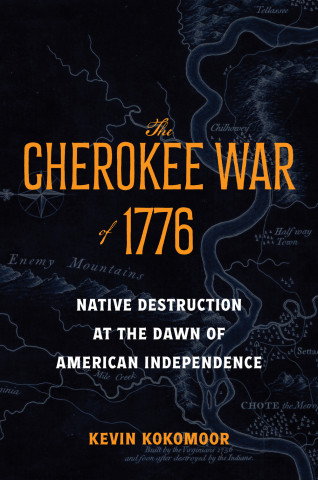
Reviews
Challenges the reader... Because it invites (and nearly requires) readers to place themselves in more than one position: as a student of communication theory, as a student of computer science, as a student of academic publishing, or as a student of literature.
Landow['s]... presentation is measured, experiential, lucid, moderate, and sensible. He merely points out that the concept 'hypertext' lets us test some concepts associated with critical theory, and gracefully shows how the technology is contributing to reconfigurations of text, author, narrative, and (literary) education.
Worth reading, whether one's initial mood is enthusiasm, skepticism, or simple curiosity.
A bold and enthusiastic prediction of the impact of hypertext on literature and pedagogy.
In this insightful and readable volume, Landow explores the relationship between contemporary literary and social theory and the latest advances in computer software.
Book Details
Preface: Why Hypertext 3.0?
Acknowledgments
1. Hypertext: An Introduction
Hypertextual Derrida, Poststructuralist Nelson?
The Definition of Hypertext and Its History as a Concept
Very Active Readers
Vanneva
Preface: Why Hypertext 3.0?
Acknowledgments
1. Hypertext: An Introduction
Hypertextual Derrida, Poststructuralist Nelson?
The Definition of Hypertext and Its History as a Concept
Very Active Readers
Vannevar Bush and the Memex
Forms of Linking, Their Uses and Limitations
Linking in Open Hypermedia Systems: Vannevar Bush Walks the Web
Hypertext without Links?
The Place of Hypertext in the History of Information Technology
Interactive or Ergodic?
Baudrillard, Binarity, and the Digital
Books Are Technology, Too
Analogues to the Gutenberg Revolution
2. Hypertext and Critical Theory
Textual Openness
Hypertext and Intertextuality
Hypertext and Multivocality
Hypertext and Decentering
Hypertext as Rhizome
The Nonlinear Model of the Network in Current Critical Theory
Cause or Convergence, Influence or Confluence?
3. Reconfiguring the Text
Reconfiguring the Text
The In MemoriamWeb
New Forms of Discursive Prose—Academic Writing and Weblogs
Problems with Terminology: What Is the Object We Read, and What Is a Text in Hypertext?
Visual Elements in Print Text
Animated Text
Stretchtext
The Dispersed Text
Hypertextual Translation of Scribal Culture
A Third Convergence: Hypertext and Theories of Scholarly Editing
Hypertext, Scholarly Annotation, and the Electronic Scholarly Edition
Hypertext and the Problem of Text Structure
Argumentation, Organization, and Rhetoric
Beginnings in the Open Text
Endings in the Open Text
Boundaries of the Open Text
The Status of the Text, Status in the Text
Hypertext and Decentrality: The Philosophical Grounding
4. Reconfiguring the Author
Erosion of the Self
How the Print Author Differs from the Hypertext Author
Virtual Presence
Collaborative Writing, Collaborative Authorship
Examples of Collaboration in Hypertext
5. Reconfiguring Writing
The Problematic Concept of Disorientation
The Concept of Disorientation in the Humanities
The Love of Possibilities
The Rhetoric and Stylistics of Writing for E-Space; or, How Should We Write Hypertext?
Hypertext as Collage Writing
Is This Hypertext Any Good? Or, How Do We Evaluate Quality in Hypermedia?
6. Reconfiguring Narrative
Approaches to Hypertext Fiction—Some Opening Remarks
Hypertext and the Aristotelian Conception of Plot
Quasi-Hypertextuality in Print Texts
Answering Aristotle: Hypertext and the Nonlinear Plot
Print Anticipations of Multilinear Narratives in E-Space
Narrative Beginnings and Endings
Michael Joyce's afternoon
Stitching Together Narrative, Sexuality, Self: Shelley Jackson's Patchwork Girl
Quibbling: A Feminist Rhizome Narrative
Storyworlds and Other Forms of Hypertext Narratives
Computer Games, Hypertext, and Narrative
Digitizing the Movies: Interactive versus Multiplied Cinema
Is Hypertext Fiction Possible?
7. Reconfiguring Literary Education
Threats and Promises
Reconfiguring the Instructor
Reconfiguring the Student
Learning the Culture of a Discipline
Nontraditional Students: Distant Learners and Readers outside Educational Institutions
The Effects of Hypermedia in Teaching and Learning
Reconfiguring Assignments and Methods of Evaluation
A Hypertext Exercise
Reconceiving Canon and Curriculum
Creating the New Discursive Writing
From Intermedia to the Web—Losses and Gains
Answered Prayers, or the Academic Politics of Resistance
What Chance Has Hypertext in Education?
Getting the Paradigm Right
The Politics of Hypertext: Who Controls the Text? Can Hypertext Empower Anyone? Does Hypertext Have a Political Logic?
The Marginalization of Technology and the Mystification of Literature
The Politics of Particular Technologies
Technology as Prosthesis
The Political Vision of Hypertext; or, the Message in the Medium
Hypertext and Postcolonial Literature, Criticism, and Theory
Infotech, Empires, and Decolonization
Hypertext as Paradigm for Postcoloniality
Forms of Postcolonial Amnesia
Hypertext as Paradigm inPostcolonial Theory
The Politics of Access
Who Can Make Links, Who Decides What Is Linked?
Slashdot: The Reader as Writer and Editor in a Multiuser Weblog
Pornography, Gambling, and Law on the Internet—Vulnerability and Invulnerability in E-Space
Access to the Text and the Author's Right (Copyright)
Is the Hypertextual World of the Internet Anarchy or Big Brother's Realm?
Notes
Bibliography
Index






